MGMT on their humble beginnings and return to form: "We demoed Oracular on a Radio Shack mic and a really bad interface with signal bleed. We thought we'd have to redo it, but our producer said there's a character about it we'll never be able to recreate"
15 years after their early success, MGMT explain how they’ve got their mojo back on new album Loss of Life
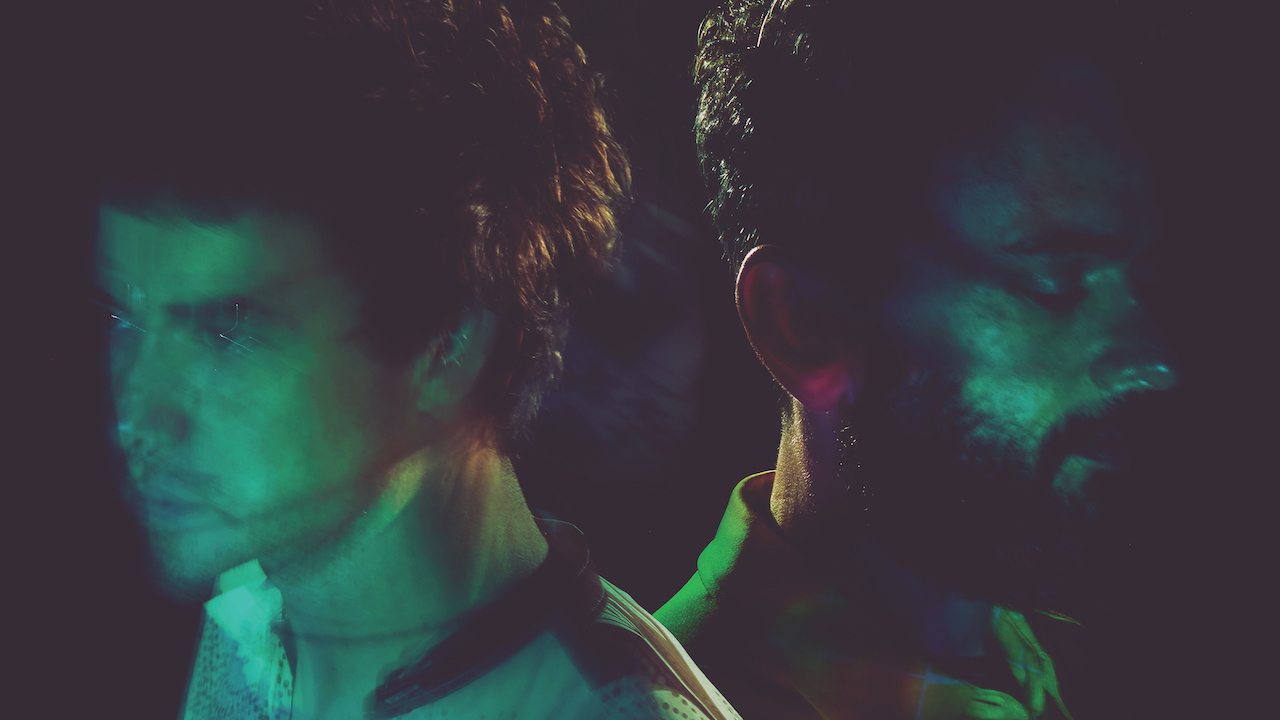
Somewhat gentrified by stardom following their multi-million selling debut album Oracular Spectacular (2007), MGMT’s Andrew VanWyngarden and Ben Goldwasser’s satirical take on modern pop became increasingly muddied, leading to underwhelming sales and a sense of bewilderment from fans and critics alike. By the time they’d reached their self-titled third album, the duo’s sense of disillusionment was all too apparent.
In 2018, the LP Little Dark Age saw something of a critical renaissance, prior to a six-year hiatus that halted their newfound momentum. However, now departed from Columbia Records, the band’s fifth studio album, Loss of Life, sees them hit new heights once more. Brimming with renewed confidence, the record’s catchy folk guitars, bristling rock chords and ultra potent songcraft fully reinvigorates MGMT’s legacy.
When you formed MGMT you had a general disdain for the music industry. Now you’ve been a steady part of it for a few decades, has that dissipated?
Benjamin Goldwasser: “I wouldn’t call it disdain; I think we had a playful approach to the idea of pop stardom. A lot of that came from us starting a band while we were in college and playing at parties. The irony was thick, but that dissipated pretty quickly when we started getting attention from a major label and playing festivals.”
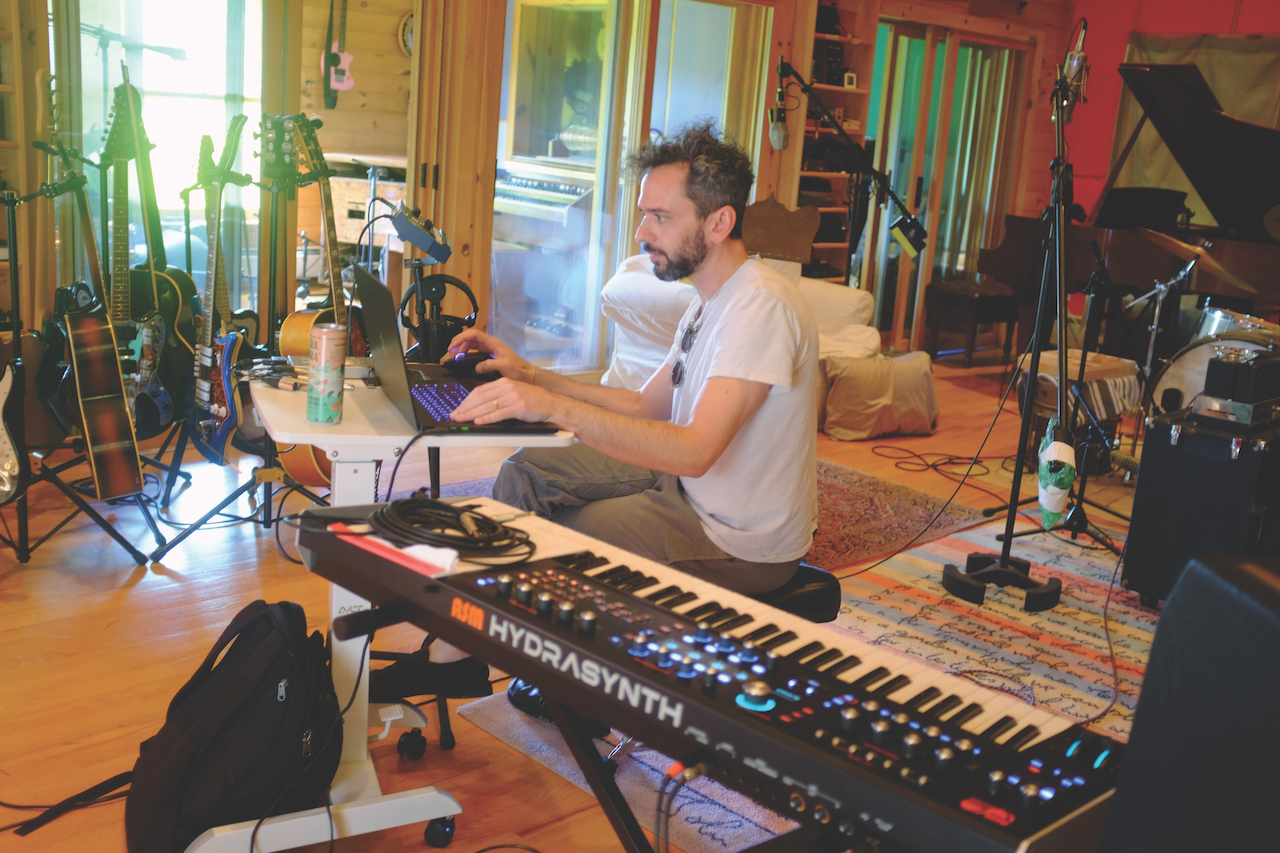
Andrew VanWyngarden: “It was more naivety than disdain. The record industry was very foreign and unknown to us. We were building a fantasy about participating in the world as ‘pop stars’, but we had no idea how to even release music. Flash forward six years and we maintained that irreverent approach while making music for a giant corporation but still didn’t have any expectations for what it could be. Once things blew up, we were rapidly forced to change.”
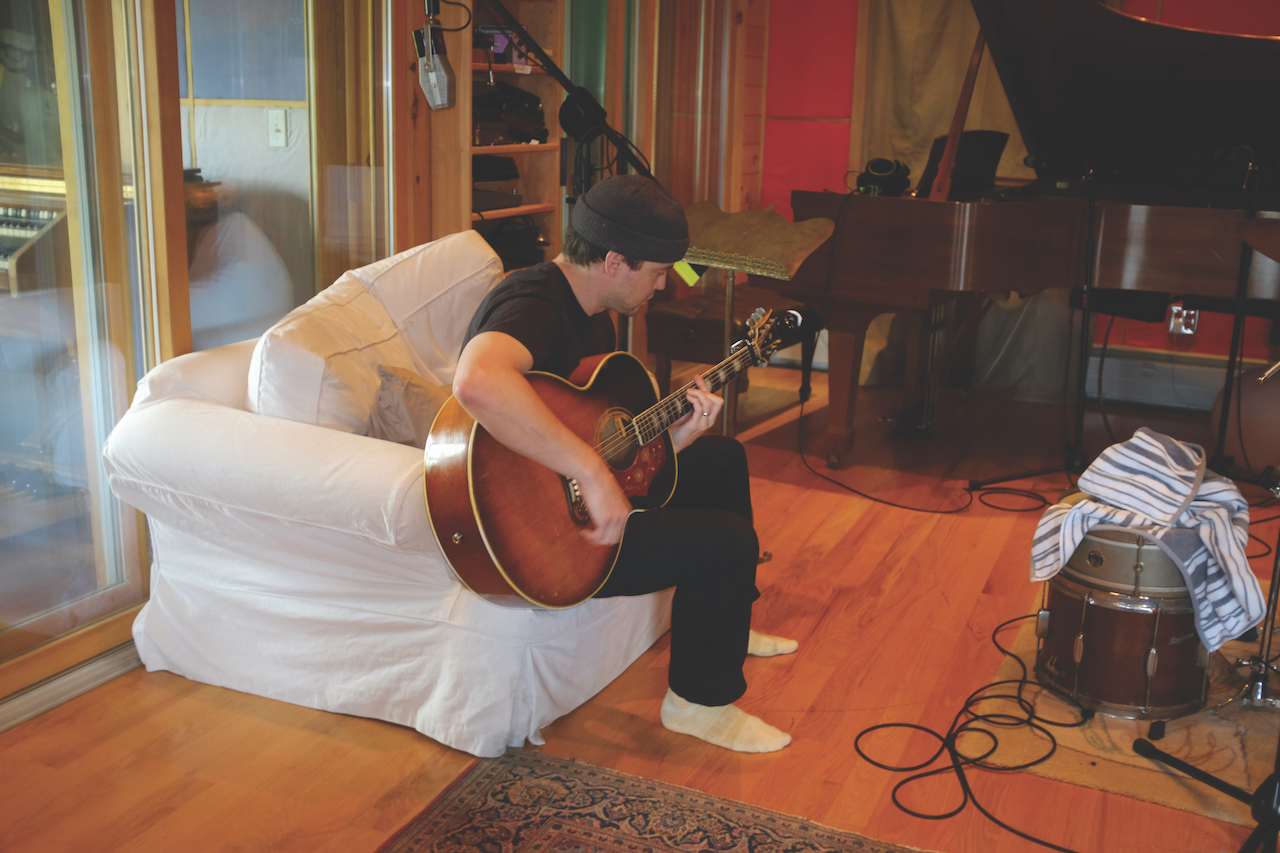
This is your first album away from Columbia Records. Do you feel the loss or has the change motivated you?
BG: “Not really having to answer to anyone probably changed the process of making the record and was a net positive. We’ll have to see how different things are when the record is released, but being able to focus more on the music and less on the industry side has been inspiring.”
Want all the hottest music and gear news, reviews, deals, features and more, direct to your inbox? Sign up here.
AV: “We no longer have the looming knowledge that we have to go through an endless cycle of promotion and touring. After releasing four albums on Columbia, it was hard not to get cynical.
“There were never any issues about them trying to influence us creatively, but we’d come away from writing something that we felt good about with the label psyched and making all these promises, but the reality was always another round of disillusionment. This time, it was definitely a relief to know we weren’t going to be part of that machine.”
The release of Loss of Life encompasses the pandemic period. Did that event act as some sort of reset?
AV: “We were finishing a tour and still had more shows to play when it all got cancelled and we were suddenly sitting at home. Despite all of the terrible aspects of that period, we reconnected to the reality that all of our friends and family had been living for 15 years while we were doing this fantasy rock star thing.”
You didn’t worry that after five or six years you’d come back and find that your audience’s tastes had changed?
BG: “Our unofficial band mascot is a tortoise, so we like to think of ourselves as moving along at our own speed. Eventually, we feel a creative spark and an urge to release something, but we’ve never put pressure on ourselves to keep constantly churning out content.”
AV: “We’ve never tried to tap into what’s hip. We’re just hoping that when we do get together the spark is still there, and it has been, which is pretty mind boggling after 21 years. Even though our lives have gone in different directions and we’re living on different coasts, there’s still this core humour and creative connection when we get together.”
Loss of Life is quite a serious title…
AV: “It’s serious in the sense that the music is important to us, but not in the sense that it’s morbid or the title is only related to death. The only other album I could find on Discogs that was called Loss of Life was a death metal record from 1990, and being abbreviated ‘LOL’ made us chuckle too.
“We love messing with people’s expectations, but after 40 years of living we’ve realised that we now want to connect in an authentic way and hope audiences can create their own meaning if they want to. I guess the album’s serious in the sense of supporting somebody who’s on a really intense acid trip – you take it seriously because you respect that person’s fragile reality.”
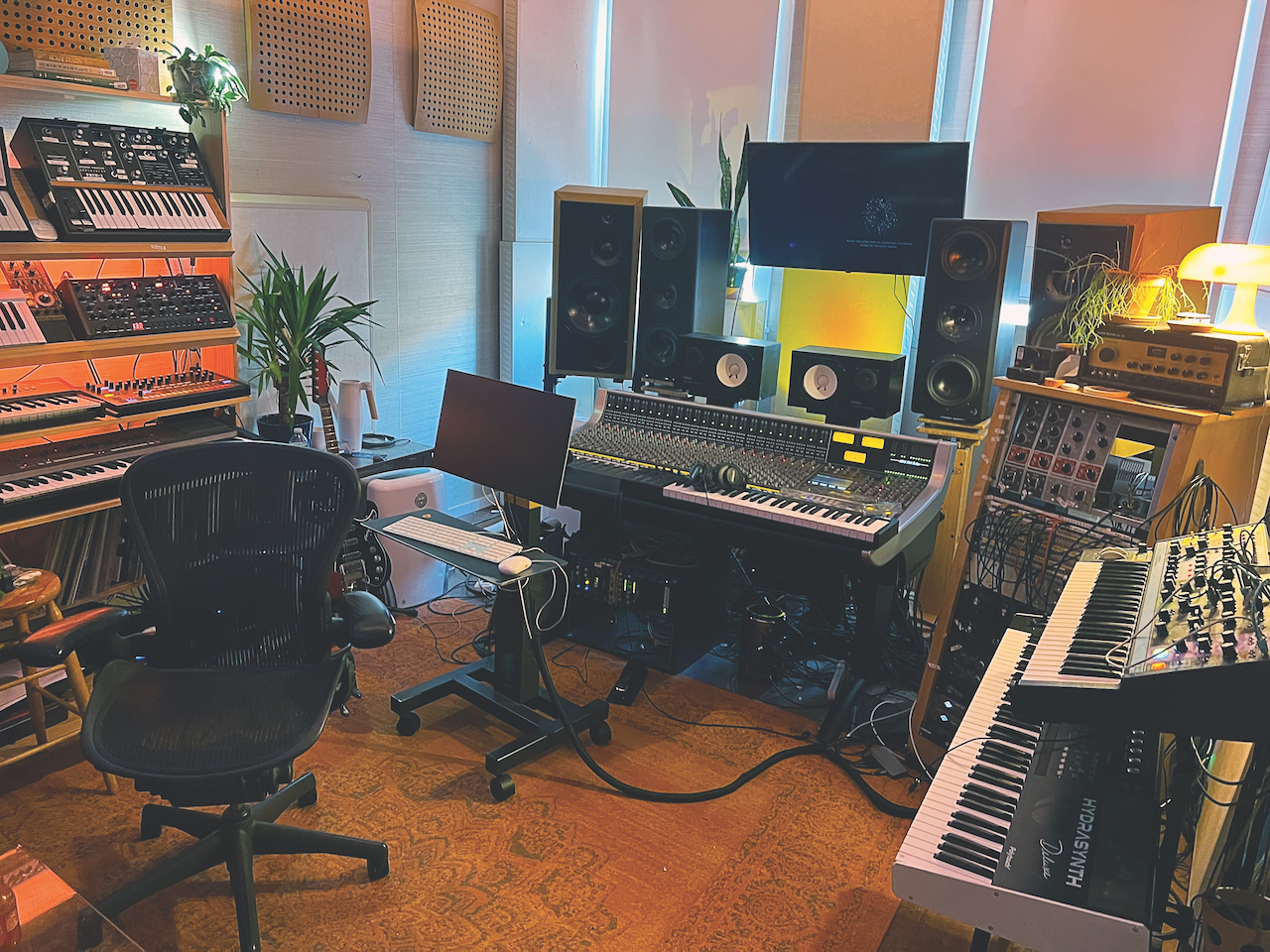
Your latter albums have been quite politically informed. Is that tiring, especially when nothing seems to change?
BG: “Our last album had a sense of urgency, with us trying to confront a lot of things head on. In a lot of ways, things have only got worse in the world since then, so part of our approach is to shift inwards or close the circle and focus on domestic life, personal relationships or the things that save you when everything you’re surrounded by is terrible.”
Does the songwriting need to be nailed down before you start experimenting with instruments and sounds?
AV: “For every album, we have hours of fun electronic jams and improv stuff that never really turns into anything and probably won’t see the light of day, but that’s usually how we reignite the spark. This album was more song title and melody driven before layering interesting sounds on top, and a lot of the tracks started with an acoustic guitar guide track.”
We’ve never tried to tap into what’s hip. We’re just hoping that when we do get together the spark is still there, and it has been
BG: “This time, we didn’t start anything from jams, although we don’t usually demo a song and flesh it out later – the arrangement and sonics go hand in hand with the songwriting and inform it. We don’t start to get really excited about a track until it starts to take shape in its final form and some of them had beginnings in really old ideas going back as far as 10 years. Bubblegum Dog was a track that we started during Little Dark Age but it didn’t feel like it really fit that record.”
AV: “We had a sketch for Nothing Changes when we were making our last album, but most of the other ones are new. We did a couple of sessions at Dave Fridmann’s studio in 2021 that were more exploratory and really started getting going with the introduction of producers Patrick Wimberly and Miles A. Robinson in 2022. By the spring, we had a lot done and spent the rest of the year working with Patrick, Miles and Daniel Lopatin in various studios adding, refining and sculpting the songs into the final thing.”
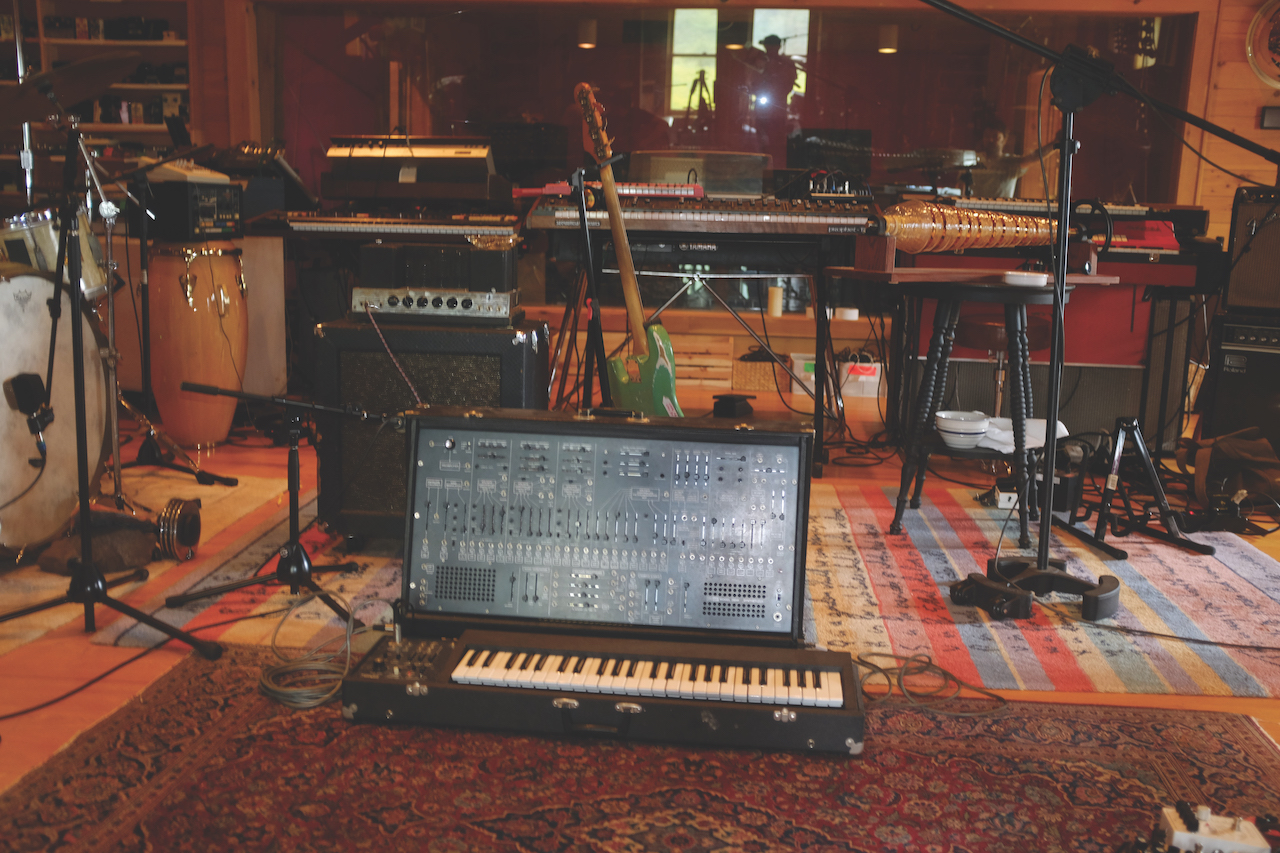
Are you mindful about doing certain things to switch up the songwriting process or is the distance from one album to the next enough to come back with new ideas?
BG: “We figured out how to work remotely, sending stems back and forth then iterating on that. There’s also something nice about committing to audio. We’re not working with an identical set of plugins – if we want to send something we have to commit and bounce it down, so it becomes sound and not just a session or a bunch of settings.
“To see what each other comes back with has been really cool because we might hear something or chop something up in a way that’s quite surprising. I don’t know if that process of working apart felt comfortable the last time around, but this time it didn’t feel like a limitation and when we did get together we felt really inspired and focused in the studio.”
Do you have your own studio setups?
BG: “I have a small studio in Los Angeles that has quite a concentrated collection of gear that I enjoy using and Andrew has a home setup with some good stuff too, but it’s nice to go to a studio that has things we’ve never played before or instruments we don’t know how to use and have some fun getting cool sounds out of them.”
AV: “For every album I somewhat spontaneously buy a random piece of gear to inspire me. This time around it was an E-mu Proteus all-in-one sampler/song arranger thing, which is really quick to work with. But like Ben says, we usually prefer to keep a simple home setup and work in other people’s studios.”
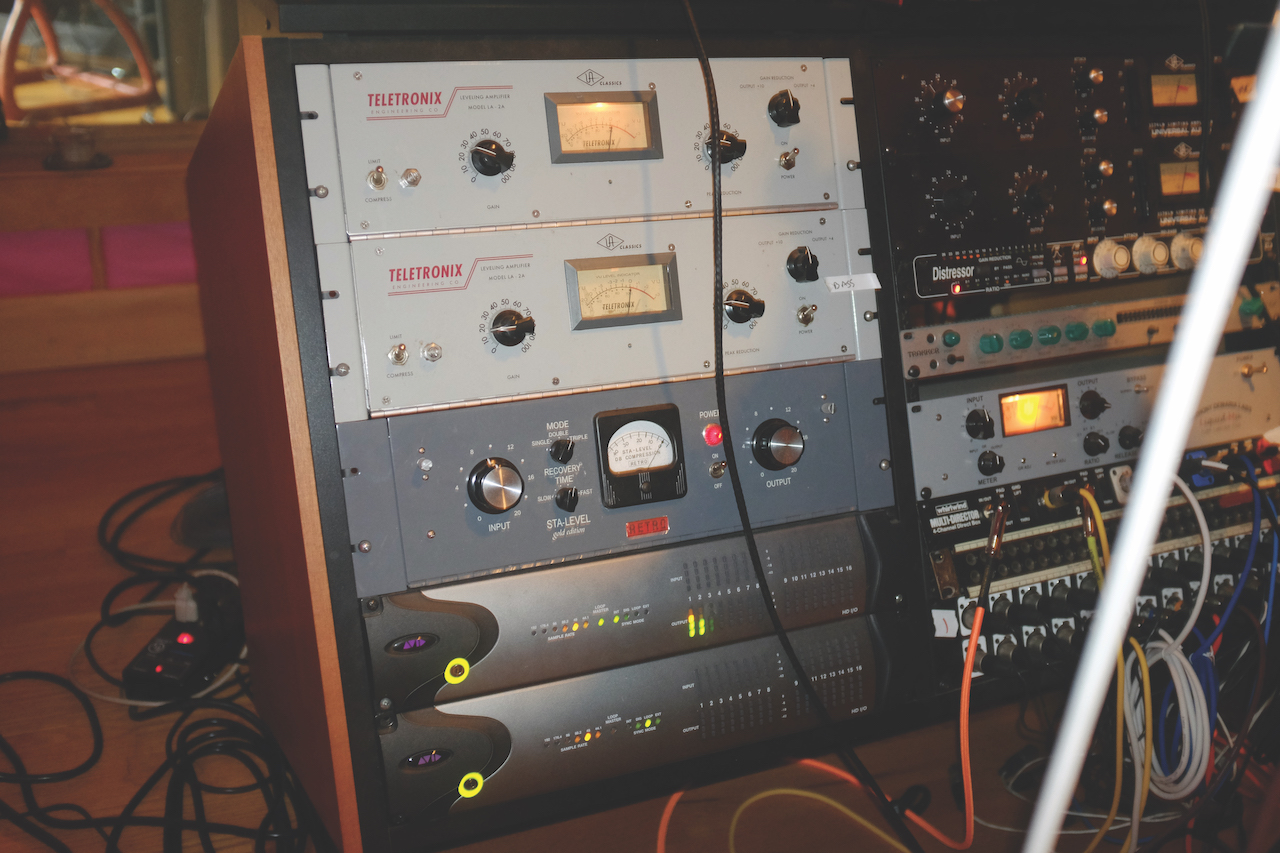
Do you typically end up in long-time mix engineer Dave Fridmann’s studio?
AV: “We worked a little in Ben’s studio, a lot in Patrick’s studio in Brooklyn and did a couple of sessions in Connecticut that were very productive, but we finished at Dave Fridmann’s Tarbox Studio in New York where we knew we could cut things away and refine and turn the songs into a complete album.”
BG: “We’ve been working at Tarbox for so long that we’ve built up knowledge of Dave’s gear and can remember specific cool sounds that we got from something 10 years ago and bring it back. He also has an amazing collection of old digital effects units.
“I do have a love/hate relationship with gear in general though. You can have this idea that a piece of gear is the answer to all of your problems or you have to spend time using it because you spent money on it, but there’s something nice about being detached or more objective about the sound you’re getting and not having to overthink it.”
What does the sampled monologue that opens the album’s title track relate to?
AV: “We wanted to have an intro that would set the musical theme to the album. The original idea was expanded into an orchestral arrangement by our band mate James Richardson, but we felt it would be suited to having movie dialogue or spoken word over it. Towards the end of making the album, I spoke to our front of house sound engineer whose father happens to be an English professor who makes recordings of himself reading poems, so we took one that matched the pace, sound and mythical, shape-shifting feeling that we wanted to put across.”
You don’t typically collaborate with other artists on songs, so what appealed to you about approaching Christine and the Queens for Dancing in Babylon?
BG: “We’ve been in each other’s orbit for a little while and there had been talk about us working together, so as the track took its final shape it felt right to make it into a duet. We were referencing a lot of ’80s pop ballads and the track had that call and response going on. We were mixing in Dave’s studio when the vocal track was sent to us and were really amazed at how well it ended up working out.”
AV: “A lot of the time with featured artists you hear a thing that this person was asked to do but it doesn’t feel like they really have their heart in it. For us, there was a mutual admiration and we both wanted to do it.”
Similarly for Daniel Lopatin of Oneohtrix Point Never?
AV: “More so than the other people who featured on that track, Daniel is all over the album. In spring 2022, I went to my first public gathering after Covid and ended up talking and laughing the whole night with this one person. It was like Cinderella [laughs]. He left the party at the end of the night and I turned to my friend and said, ‘that guy’s really cool’ and he said ‘yeah, that’s Daniel Lopatin’.
At one point, almost every artist had a song with a quiet, dynamic verse followed by huge distorted guitars. We had to try it
“I’d always been a fan of Oneohtrix Point Never, but probably never seen a photo; then I put it all together. We shared a lot of ideas about what we wanted to do and where we thought music was headed, so we invited him to listen to what we were working on and he added additional production, but is most prominent on Phradie’s Song.”
When you write a track as strong as Bubblegum Dog, you must know it’s going to be a hit. At what point do you know you’re onto a winner?
AV: “I’m happy to hear you say it feels like a hit, although I don’t even know what a hit is anymore. We kind of experienced that with the song Little Dark Age a few years ago, which went viral on Tik Tok. We weren’t anticipating that, but we knew it was a catchy song and believed in the melody and power of it. I think the same is true of Bubblegum Dog. Usually when things are going around in circles in my head for a long time, it means they have potential.”
BG: “I feel Bubblegum Dog was the most effort that we put into actually writing a guitar solo for a song and planning the whole thing out note for note.”
AV: “When the heavy guitars come in on the chorus we were referencing bands like Weezer, Green Day, Nirvana and Bush. At one point, almost every artist had a song with a quiet, dynamic verse followed by huge distorted guitars on the chorus. We had to try it.”
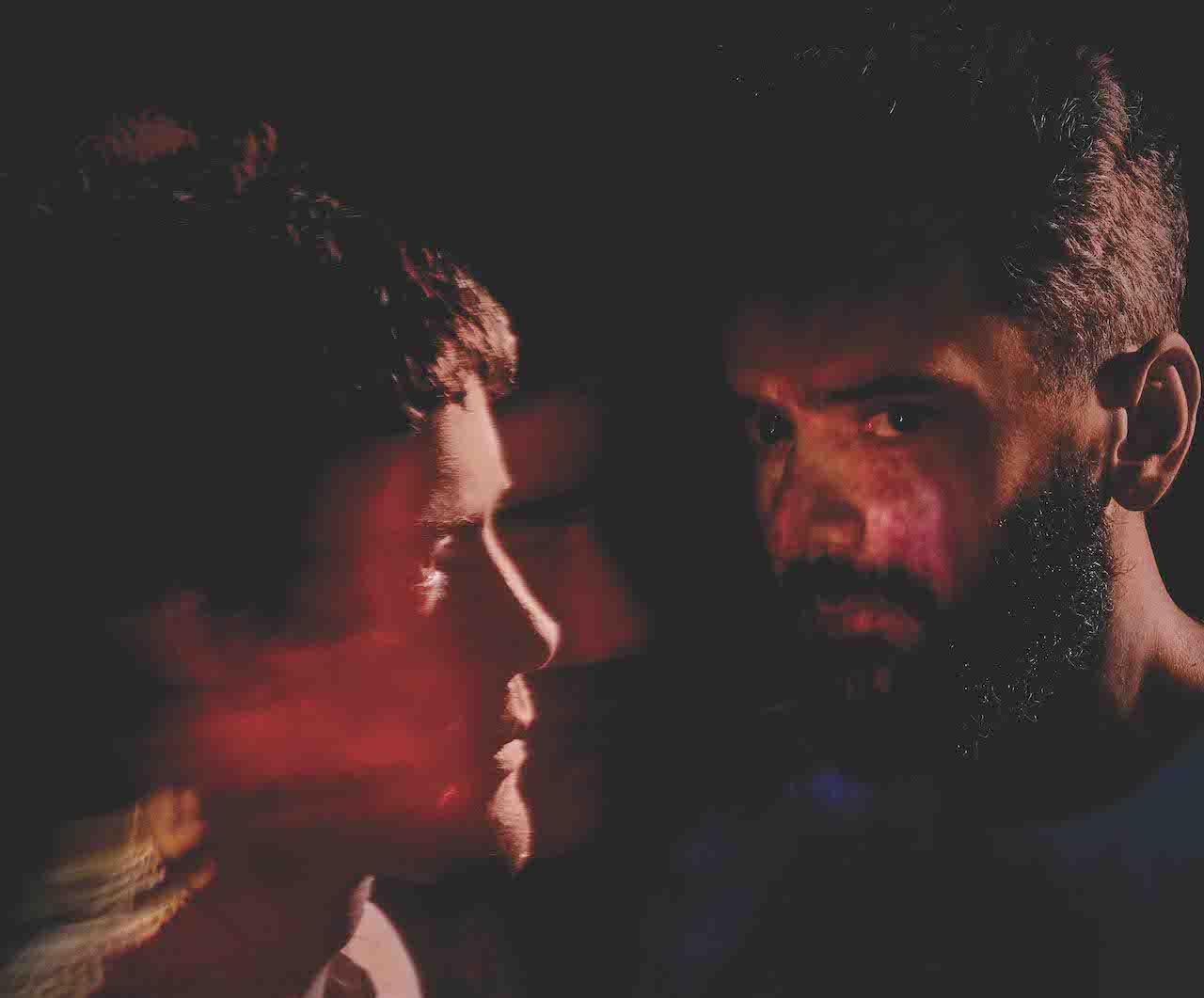
The electronic element on this album seems low-key in favour of acoustic and electric guitar. Was that deliberate or are the synths just well-disguised?
BG: “I had a lot of fun taking acoustic and instrumental recordings and treating them electronically, but in a subtle way rather than trying to make them sound as weird as possible. These days, nearly everyone is computer literate when it comes to making music, but at this point unlearning seems more important to us than learning.
"Dave Fridmann has been a good mentor. When we were making our first record, we had rough demos recorded on a Radio Shack microphone and a really bad digital interface that had signal bleed between the channels. We thought, surely Dave’s going to want to redo all of this, but he said, no, there’s a character about it that we’ll never be able to recreate if we try it any other way. That’s stuck with us alongside the same irreverence we had when we very first started the band.”



![MGMT - Dancing In Babylon (feat. Christine and the Queens) [Official Video] - YouTube](https://img.youtube.com/vi/fIRRHU_D8CE/maxresdefault.jpg)
